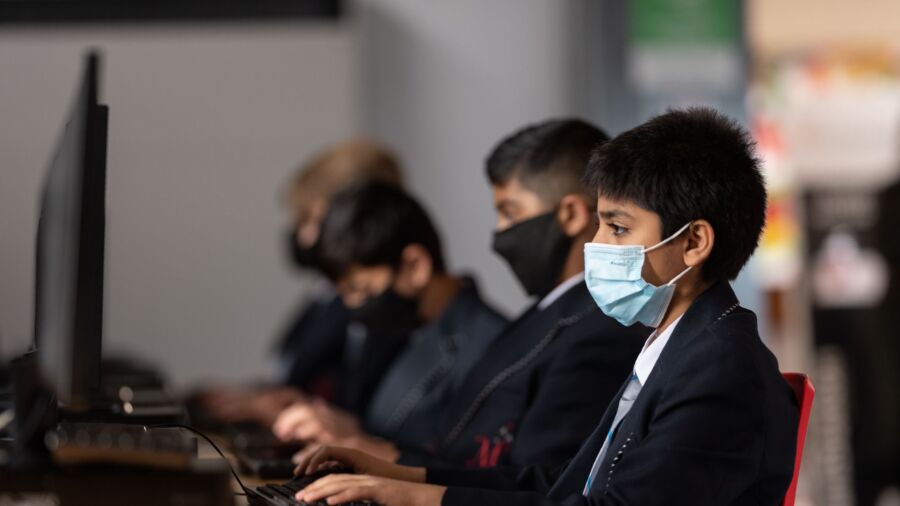Children whose parents lost their jobs or were furloughed during the COVID-19 pandemic experienced problems in their social and emotional development, a study in the U.K. has found.
The Institute for Fiscal Studies (IFS) study published Aug. 1 surveyed 6,095 parents in the U.K. with children aged 4 to 16.
The parents were asked whether they had been fired or furloughed during the first year of the COVID-19 lockdowns and whether they believed their children were emotionally and socially burdened during that time.
Half of the parents experienced a “labor change,” as the study calls the loss of a job or furlough, that negatively affected their psychological situation, which, intern, also affected their children.
“Nearly half of parents reported that their child had more socio-emotional difficulties in February 2021 than a year earlier,” the study says.
Only 16 percent of the parents reported that their child had fewer challenges in this area compared with before the lockdowns.
The study found that the most vulnerable groups were girls and younger children.
The extent of the worsening in children’s socio-emotional development was “9 percent of a standard deviation more than those whose families remained consistently employed or unemployed throughout.”
As cited in the study, other factors that caused socio-emotional difficulties in children were school closures, the death of family members, and lack of contact with friends and extended family.
Fundamentally the report highlighted better outcomes in the socio-emotional skills of “children whose parents had stable labor market experiences throughout the pandemic” compared to “the skills of children whose families faced more economic instability.”
Rise in Eating Disorders
Separately, a statement by the U.K.’s children’s commissioner, Dame Rachel de Souza, said on Aug. 1 there had been a “large and recent increase” in the number of children and young people admitted to hospital for eating disorders, according to the latest NHS figures.
Speaking to the Telegraph regarding the IFS study, Mrs. de Souza commented: “This study shows that the disruption the pandemic caused to children’s development has been long-lasting. It is vital that the right social and emotional support is made available to allow children the chance to recover and go on to achieve all that they want to.”
A recent study published on July 27 by the BMC Public Health journal showed a correlation between the impact of lockdowns and children’s play habits turning toward “increased dependence on structured and organized physical activities, such as active clubs, and less on unstructured and spontaneous physical activities, such as physical play.”
The study suggests that children from “lower socio-economic households” and girls may face challenges participating in this “new normal.”
Speaking to the Telegraph, former children’s commissioner Anne Longfield, who served during the lockdowns, said: “The impact of the pandemic on the well-being and development of many of our children is extremely alarming. I am not convinced though that the Government fully grasps the scale of the problem or the long-term consequences for our society and economy.”
Lockdowns Detrimental to Mental Health
Another study from Deakin University reviewed 33 published papers that studied 132,000 people from various regions.
They found that overall, “social restrictions doubled people’s odds of experiencing mental health symptoms.”
The odds of experiencing depression increased 4.5 times during lockdowns; for stress, it was 1.5 times, and loneliness doubled.
They also found that the stricter lockdowns resulted in more depression, while the partial lockdowns or the beginning of a lockdown period resulted in more anxiety.
Age-wise there was also a difference, with young and middle-aged adults reporting higher anxiety symptoms than older adults.
A study in Germany this year reported that 73 percent of children and young people “still feel stressed after the pandemic,” as cited in Breitbart. Learning problems, depression, or eating disorders were the effects of the pandemic restrictions on minors, according to the study.
Joseph Robertson contributed to this report.

